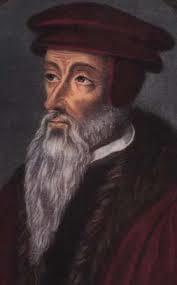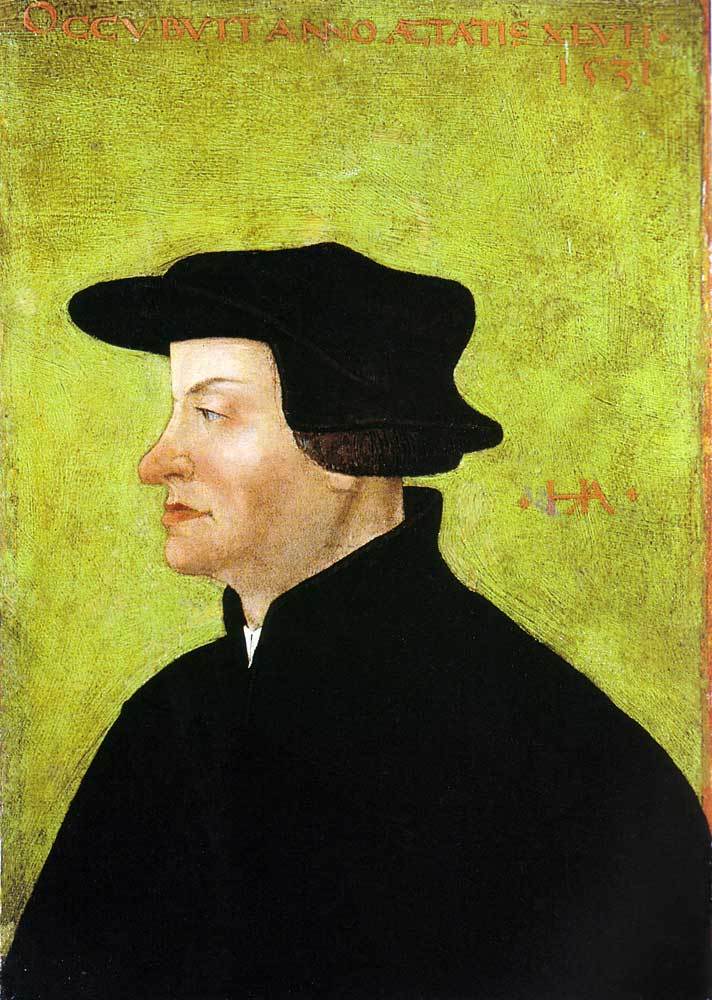Conflicting Religious Perspectives (1517 - 1558)
Chapter 4 : Calvinist Perspective

John Calvin was a French lawyer, who moved to Geneva in Switzerland, where other reformers such as Huldrych Zwingli in Zurich were already developing new Protestant ideas. Published in 1536 Calvin’s Institute of the Christian Religion, provided the first summary of the new Reformed or Calvinist doctrine.
By 1558, there were Reformed Churches in Switzerland, the German Palatinate state, Scotland and French-speaking Navarre, plus increasing minorities in France (Huguenots), and the Spanish-occupied Low Countries. The Protestants who returned to England from Geneva after Queen Mary’s reign were predominantly Calvinist.

Church Authority
Like Luther, Calvin saw the Bible as the sole authority for religious matters, and went further in extending this principle into the area of church governance too. Whilst keeping the pattern of national churches, he rejected all forms of human control, replacing the pattern of bishops with five New Testament roles (Ephesians 4 v 11-13), of which pastor and teacher were seen as most relevant in the contemporary situation.
Although Calvin believed national Church pastors would meet occasionally, for example to agree Calvinist confessions of faith, their primary role was to support the members of their congregations as they grew in godliness, under the guidance of the Holy Spirit.
In this endeavour, members were encouraged to study the Bible themselves, particularly new translations such as the English Geneva Bible, which included pictures and Calvinist annotations to assist.
Beliefs and Practices
Reformed Church confessional beliefs emphasised God’s all-encompassing love and grace, which was known by those he had unconditionally pre-destined for eternal salvation (the elect).
Those whom he foreknew he also predestined to be conformed to the image of his Son … And those whom he predestined he also called; and those whom he called he also justified; and those whom he justified he also glorified (Romans 8 v 29-30)
Whatever befell, the elect would persevere. Their faith, love and obedience to the Bible were outward signs of their godly hearts. Conversely, ungodly, sinful people were pre-destined for eternal damnation.
Without constraining liturgy, Calvinist services focused on preaching and teaching, with some singing of psalms. However, the sacraments of infant baptism and the Lord’s Supper remained, with the bread and wine seen as having particular spiritual significance.
